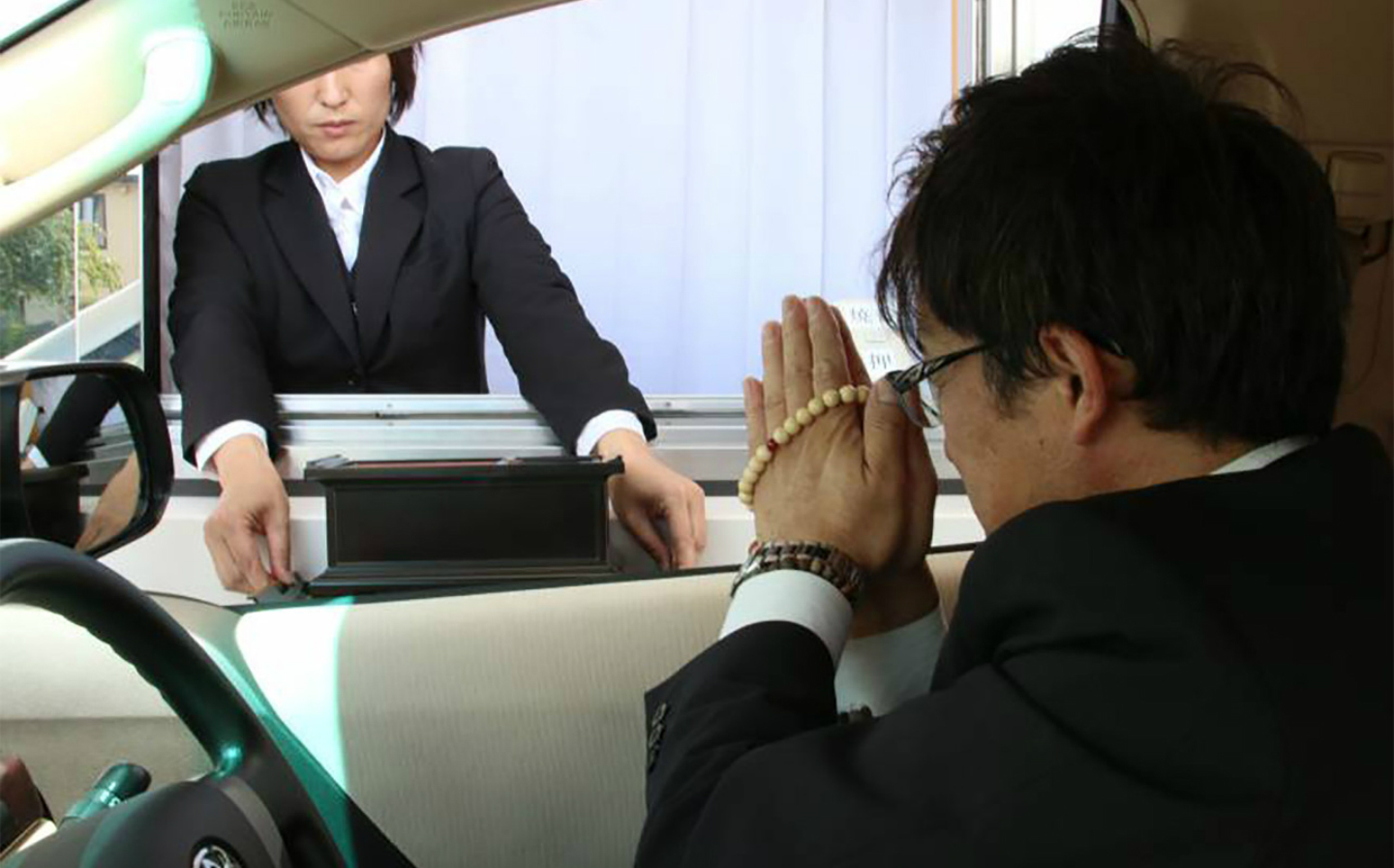Quick service: Japan gears up for the drive-through funeral
An entrepreneur is offering the elderly the chance to send off dead friends in three minutes flat, without leaving their cars
IT IS a system familiar from fast-food chains and car parks across the world: drive in, roll down the window, conduct a transaction with the uniformed operative in the booth and, after a few moments, be on your way.
Now the drive-through is coming to a Japanese funeral parlour. When the South Ueda Palace of Rest opens later this year, it will offer the country’s first drive-through funerals, in which mourners can light incense, pray and sign the book of condolence from inside their vehicle.
It may seem surprising in a nation that attaches the utmost importance to funerary rites. However, the system is not designed for the convenience of impatient customers but to accommodate the physical needs of mourners in the world’s most aged society. A quarter of people in Japan are over 65 and the birth rate is in long-term decline.
Browse NEW or USED cars for sale
“People pass judgment on us because they don’t look beyond the words ‘drive-in funeral’,” said Masao Ogiwara, the undertaker behind the idea. “But Japan is the most elderly society in the world and this will allow people to say their goodbyes. This is not about business; it is our duty.”
With his funeral home in Ueda, a town in central Japan, Ogiwara hopes to capitalise on Japan’s unbalanced demographics. Fifteen years ago he was in the wedding business, organising 370 a year. As more and more young people leave mountain towns such as Ueda, Ogiwara has seen his wedding operation shrink to fewer than 40 events a year. Funerals now make up 90% of his business.
An attendant will pass incense into the car and the book of condolence will be signed on a tablet computer
Ogiwara came up with his brainwave after noticing poor attendance at funerals of the very old and realising that many friends were too frail to send off the deceased. A full funeral — with speeches, the lighting of incense sticks by each mourner, a recitation of sutras by a Buddhist priest and a wake — can last three hours, but attending is a profoundly important duty. Japanese people traditionally believe that the prayers and incense soothe the soul of the deceased, easing their transition into the next world.
At the drive-through Palace of Rest a black-clad attendant will pass incense into the mourners’ cars. The book of condolence will be available for signing on tablet computers. As mourners bow their heads in prayer, they will be filmed, and the footage will be screened for the bereaved family inside the hall. Thus is a three-hour ceremony reduced to three minutes.
“If someone is unable to attend the funeral of a dear friend, they will always be left with a feeling of regret,” Ogiwara said. “Enabling people to overcome that and to console the spirits of the dead: that is the purpose of our business.”
Richard Lloyd Parry
This article first appeared in The Times





